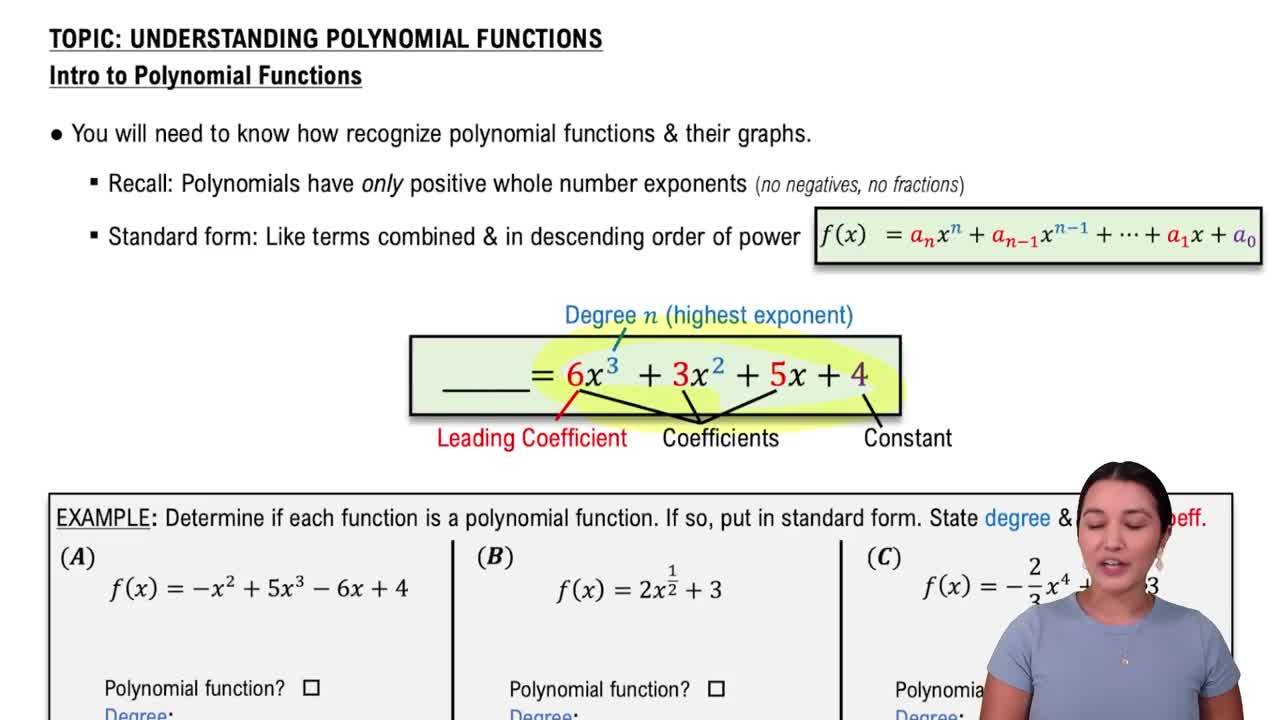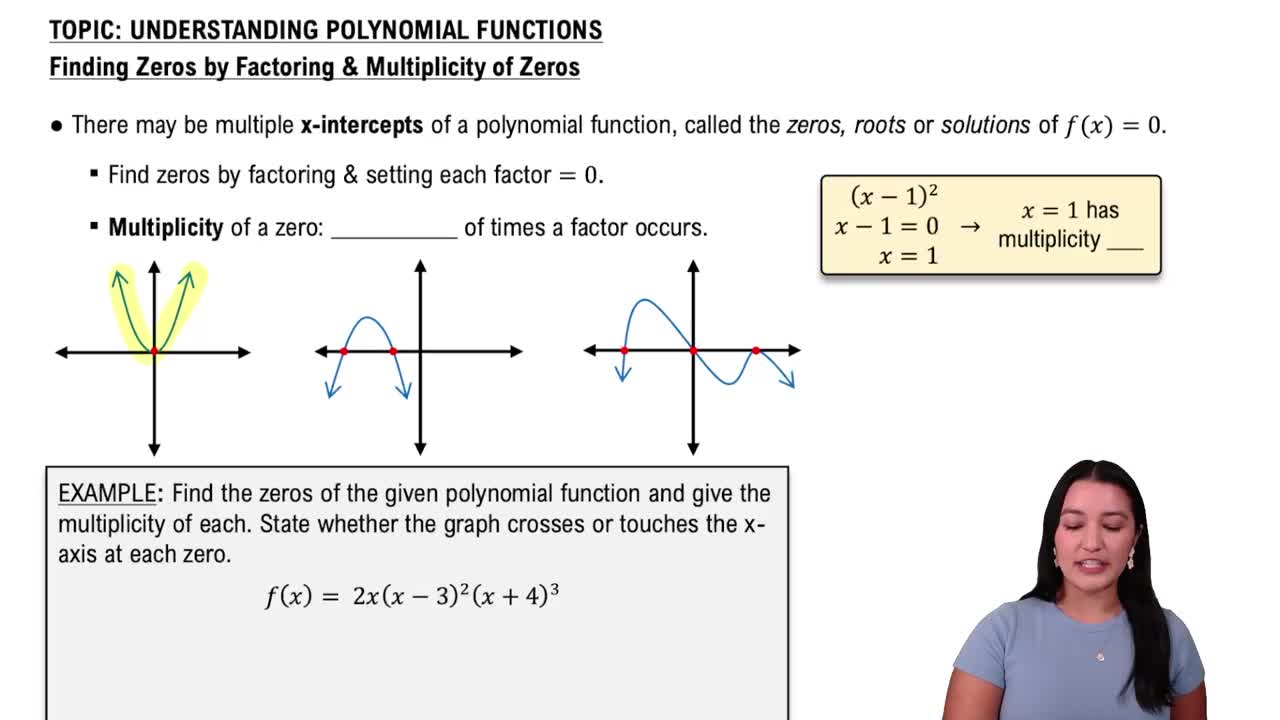Table of contents
- 0. Review of Algebra4h 16m
- 1. Equations & Inequalities3h 18m
- 2. Graphs of Equations43m
- 3. Functions2h 17m
- 4. Polynomial Functions1h 44m
- 5. Rational Functions1h 23m
- 6. Exponential & Logarithmic Functions2h 28m
- 7. Systems of Equations & Matrices4h 6m
- 8. Conic Sections2h 23m
- 9. Sequences, Series, & Induction1h 19m
- 10. Combinatorics & Probability1h 45m
4. Polynomial Functions
Zeros of Polynomial Functions
Problem 67
Textbook Question
Find a polynomial function ƒ(x) of least degree having only real coefficients and zeros as given. Assume multiplicity 1 unless otherwise stated. See Examples 4–6. 2-i, 3, and -1
 Verified step by step guidance
Verified step by step guidance1
Identify the given zeros: \(2-i\), \(3\), and \(-1\).
Since the polynomial has real coefficients, the complex zero \(2-i\) must have its conjugate \(2+i\) as a zero as well.
Write the factors corresponding to each zero: \((x - (2-i))\), \((x - (2+i))\), \((x - 3)\), and \((x + 1)\).
Multiply the conjugate pair factors: \((x - (2-i))(x - (2+i))\) to get a quadratic factor.
Multiply all the factors together: \((x - 3)(x + 1)\) with the quadratic factor obtained in the previous step to form the polynomial \(f(x)\).
Recommended similar problem, with video answer:
 Verified Solution
Verified SolutionThis video solution was recommended by our tutors as helpful for the problem above
Video duration:
10mPlay a video:
Was this helpful?
Key Concepts
Here are the essential concepts you must grasp in order to answer the question correctly.
Polynomial Functions
A polynomial function is a mathematical expression involving a sum of powers in one or more variables multiplied by coefficients. The general form of a polynomial in one variable x is given by f(x) = a_n*x^n + a_(n-1)*x^(n-1) + ... + a_1*x + a_0, where a_n, a_(n-1), ..., a_0 are constants and n is a non-negative integer representing the degree of the polynomial.
Recommended video:

Introduction to Polynomial Functions
Zeros of a Polynomial
The zeros (or roots) of a polynomial are the values of x for which the polynomial evaluates to zero. For a polynomial of degree n, there can be up to n zeros, and each zero corresponds to a factor of the polynomial. If a zero has a multiplicity greater than one, it indicates that the factor associated with that zero is repeated in the polynomial's factorization.
Recommended video:

Finding Zeros & Their Multiplicity
Complex Conjugate Root Theorem
The Complex Conjugate Root Theorem states that if a polynomial has real coefficients and a complex number is a root, then its complex conjugate must also be a root. This is crucial when determining the polynomial's factors, as it ensures that all roots can be expressed in terms of real coefficients, which is necessary for constructing the polynomial function with the given zeros.
Recommended video:

Complex Conjugates




